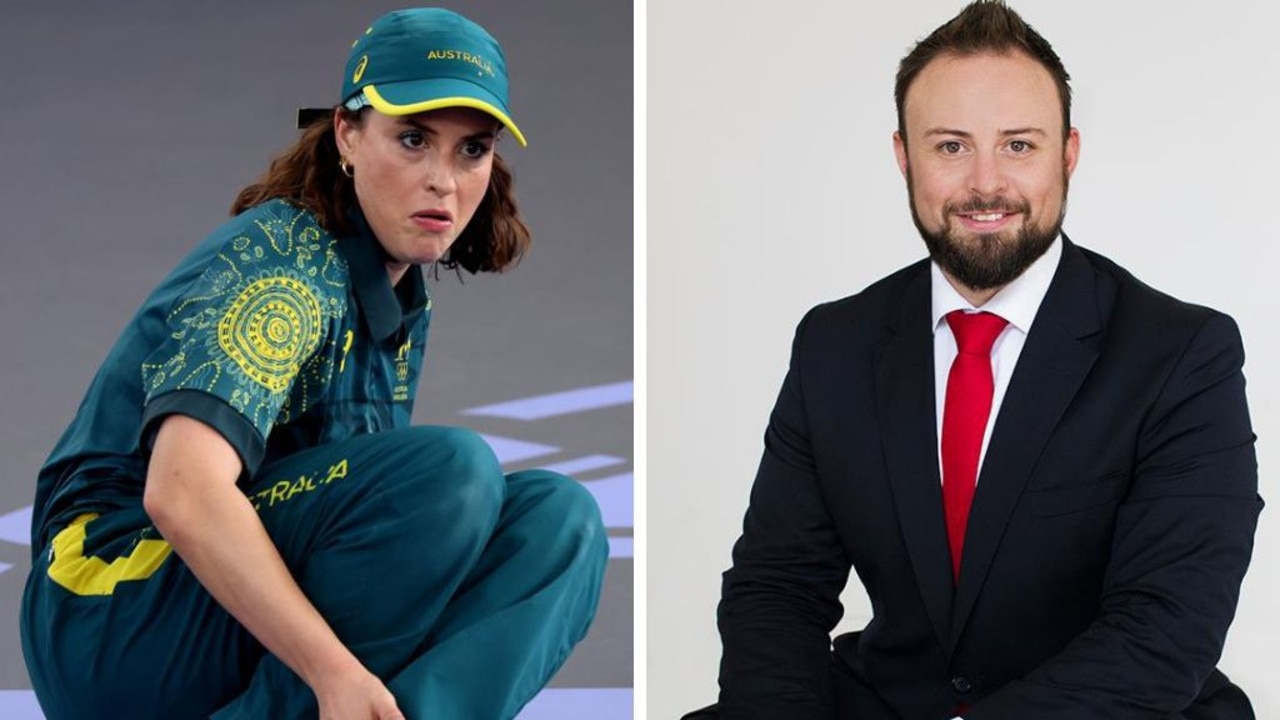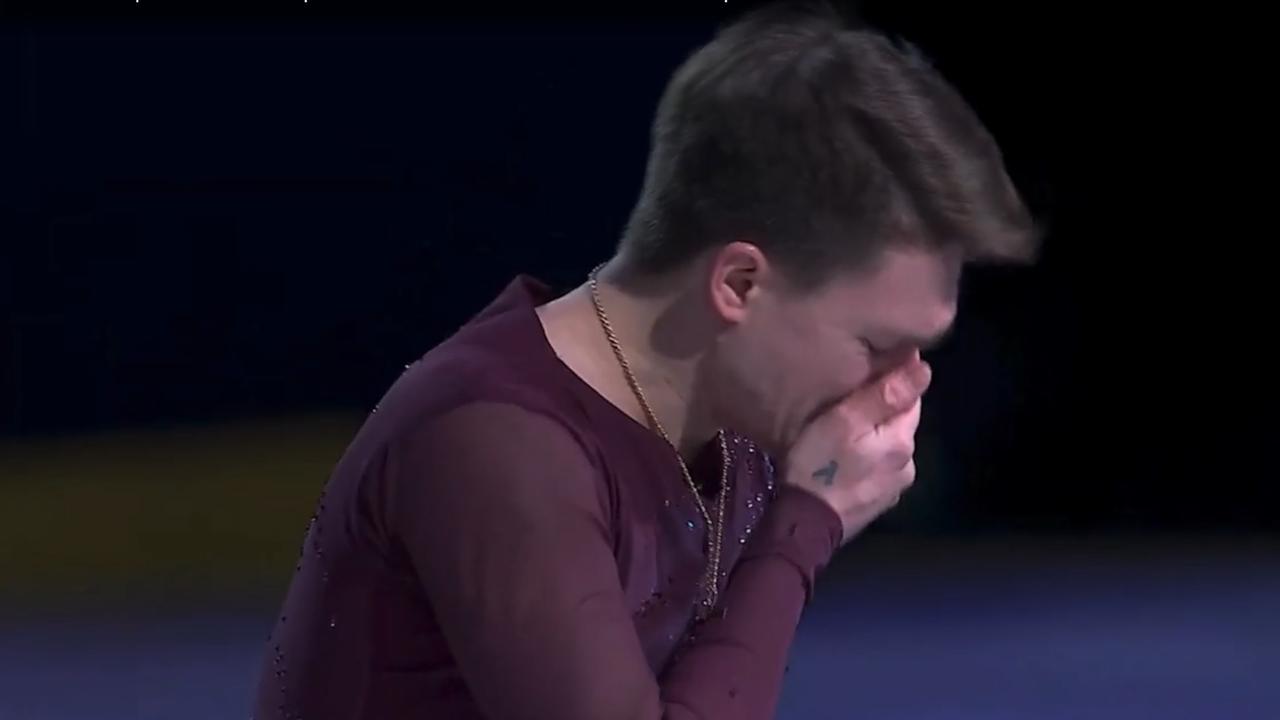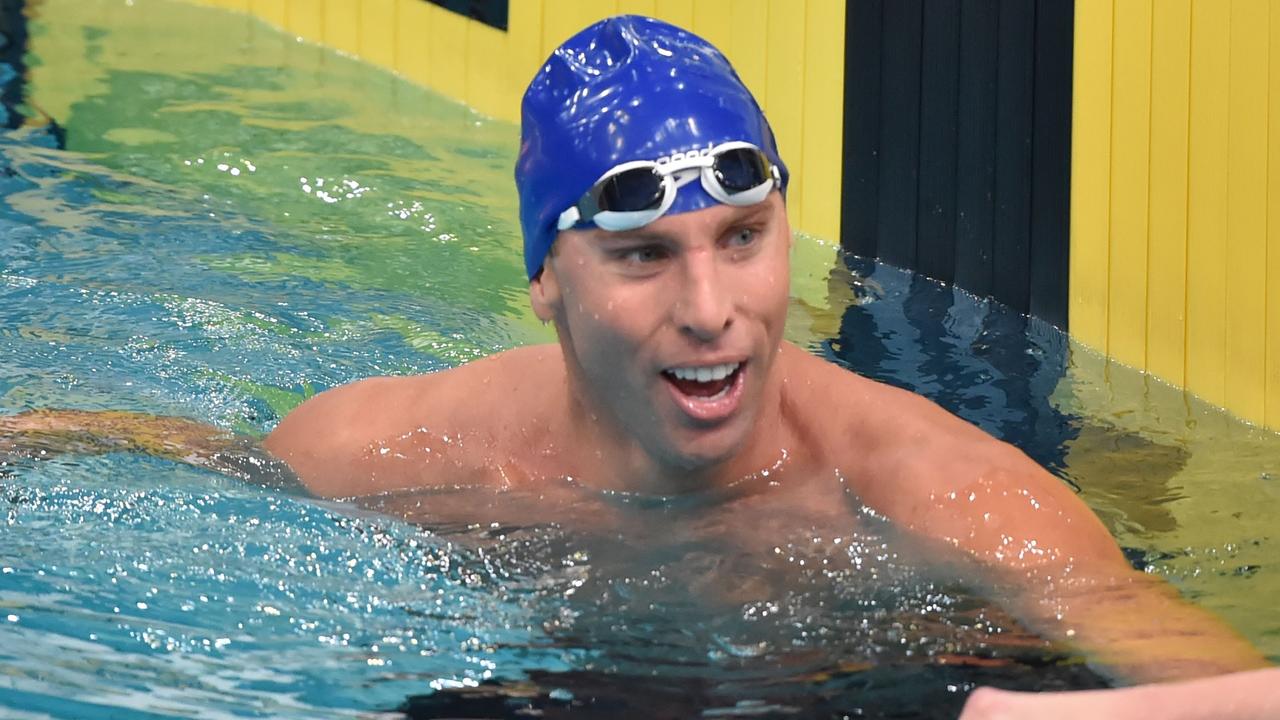Rio Olympics 2016: pain is gain for Aussie pentathletes Chloe and Max Espositos
ALL the planet’s top pentathletes train hard. But the first Aussies named in the Rio team, siblings Chloe and Max Esposito, well, they train harder.
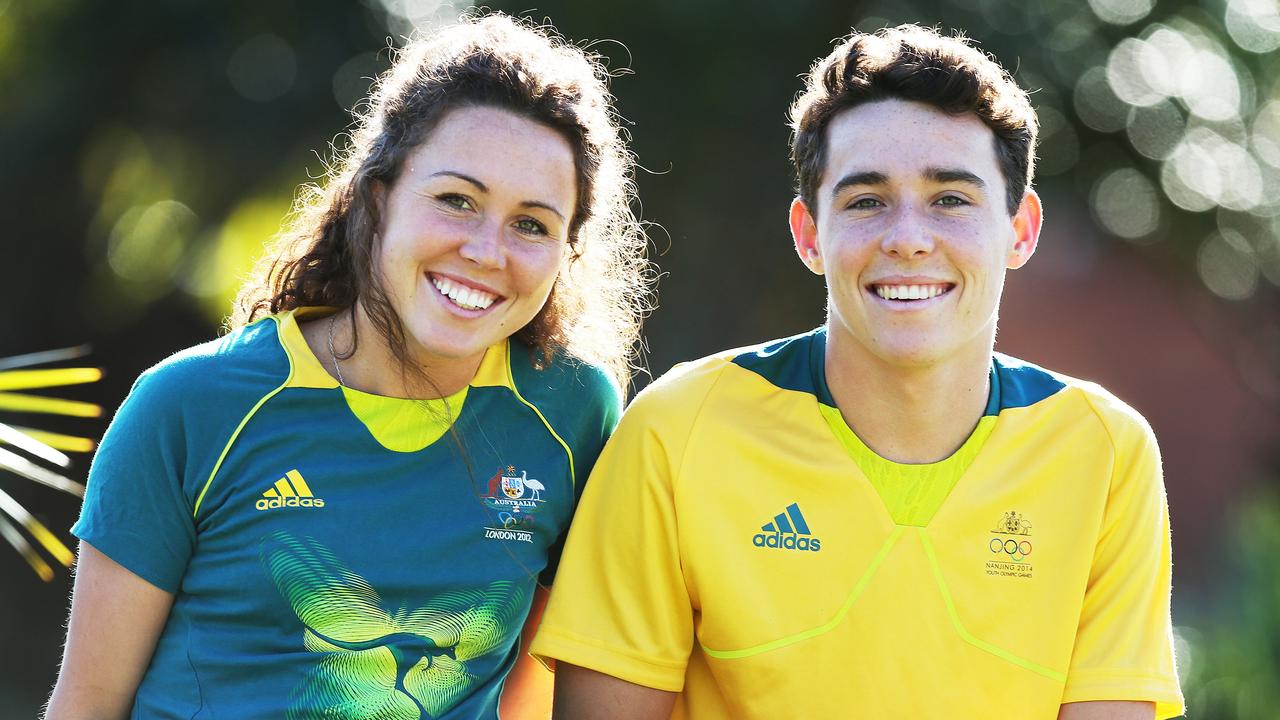
EVEN in the torturous world of modern pentathlon, the Espositos are known as being a bit different.
All of the planet’s top pentathletes train hard. Aussie siblings Chloe and Max Esposito, well, they train harder.
“I know everyone thinks Dad is a little bit crazy with his training, because we train a lot harder and do more kilometres and stuff than most pentathletes,” Chloe says.
“Training is full-on. It’s seven or eight hours a day.”
Such is life for the Espositos — 24-year-old Chloe and 18-year-old Max — who have progressed from the sports fields of Casula in Sydney’s south-west to being among the world’s top pentathletes.
As the one-year mark to the 2016 Rio Olympics ticks by next week, the Espositos are the first and only Aussie athletes with plane tickets already booked, following their respective qualifying victories in May.
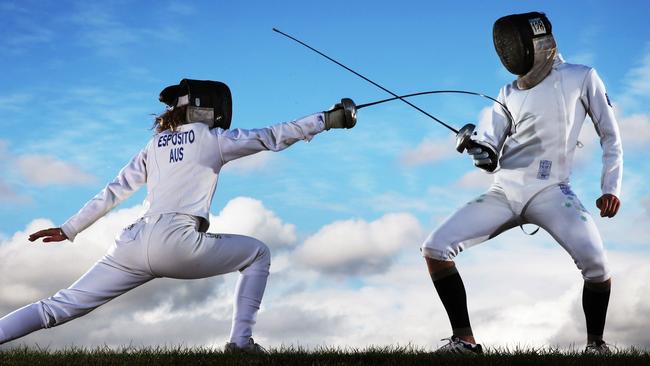
It has given the brother-sister duo and “Dad” — former Olympic pentathlete and coach Daniel Esposito — over a year to get ready, and given it’s pentathlon, they’ll need every minute.
The first ten are usually reserved for explaining pentathlon, laughs Chloe.
“Everyone always asks “what is it?”,” she says.
“We only knew about it because Dad used to do it, otherwise I don’t think we would have started.”
Modern pentathlon is a five-event competition — fencing, 200m freestyle swim, equestrian showjumping, shooting and a 3200m cross country run. It was devised by Olympic founder Pierre de Coubertin to mimic what a French cavalry officer might have to do with an unfamiliar horse behind enemy lines.
To make life more interesting, it all happens on one day at the Olympics, horses are allocated randomly, everyone fences each other once and after a points-based handicapped start, a combined running-shooting event decides the winners at the end.
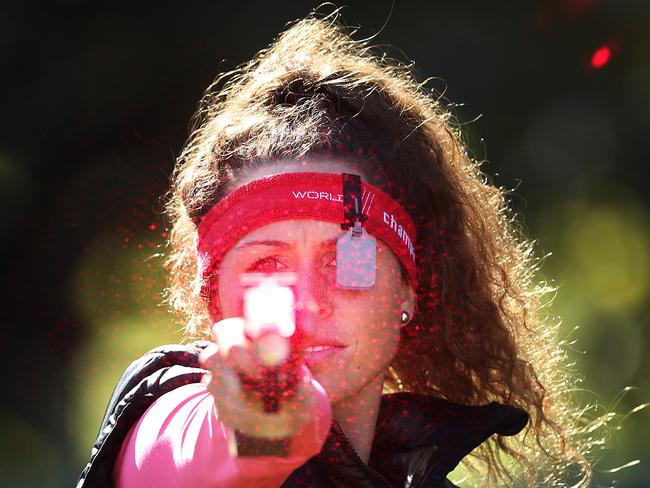
It is exhausting enough explaining it, so imagine how tough the training is. You do one Olympic discipline? Please. Just the one?
“You don’t start pentathlon as a hobby,” says Kitty Chiller, who competed in pentathlon in the 2000 Olympics and is now the Australian chef de mission for Rio. “Before Sydney I trained full-time for seven years and spent six months a year overseas.”
The Espositos do likewise. The majority of the family are now based in Hungary, a pentathlon hotspot where Max and Chloe get access to world class fencing coaching and training partners, and proximity to elite competitions.
They train six and a half days a week, with only 2-3 hours free times a day when really knuckling down.
Driving them each and every day is Daniel, who finished 20th in the LA Olympics in 1984 and qualified for Seoul as well, only to have to withdraw with injury.
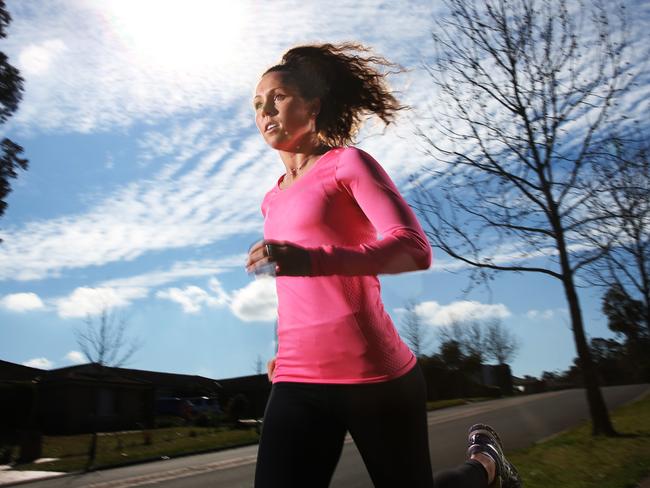
“He has been there before and he made some mistakes, and he doesn’t want us to make the same mistakes. So he teaches us and that’s one of the big things for us that have helped us to get the results we have so far,” Chloe says.
Rio will be Chloe’s second Olympics after finishing a very credible seventh in London. She is a genuine medal contender in Rio after a third in the World Cup in Minsk last month.
“I didn’t think I could get top 10 in London, Dad believed it could happen,” Chloe says.
“But there were a lot of things I could improve on ... I don’t think I was at my peak, then. I am not going to say I am going to get this place or that place (in Rio), but I will do my best and see what happens.”
A medal would make Chloe Australia’s most successful pentathlete, with Peter Macken’s fourth in 1964 still our best result.
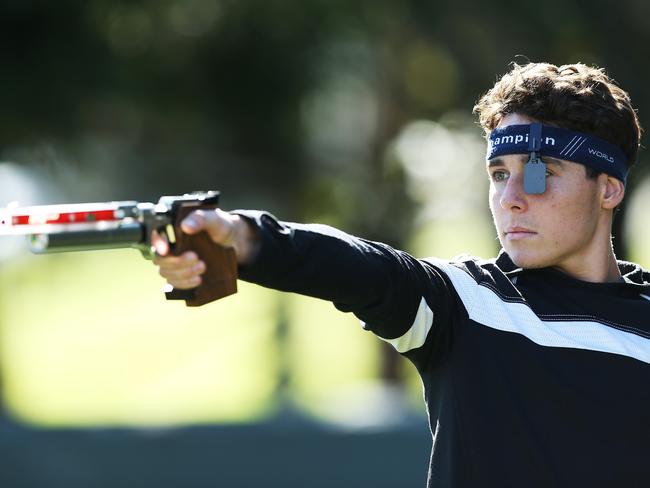
Max’s raw potential has people like Chiller seriously excited. He only began riding properly last year, and after competing against the world’s best aged 17 for most of the last year, his world ranking has gone from 163 to 24.
“Going and watching Chloe in 2012, seeing the atmosphere and that, it encouraged me to try and make an Olympics,” Max says.
“I think she is going to help me a lot and give me pointers when we get there.”
It might be a crowded family rental car in Rio. The Esposito’s middle sister Emily is also in the running to make the Olympic team for pistol shooting. It would be an Australian Olympic record.
Medal chances in Rio? Both Chloe and Max are top 5 pentathletes in all the disciplines bar fencing, hence the move to Hungary and hour-upon-hour of fencing training. Currently on a break back home in Sydney, the tink-tink-tink of practice can be heard from their Casula backyard.
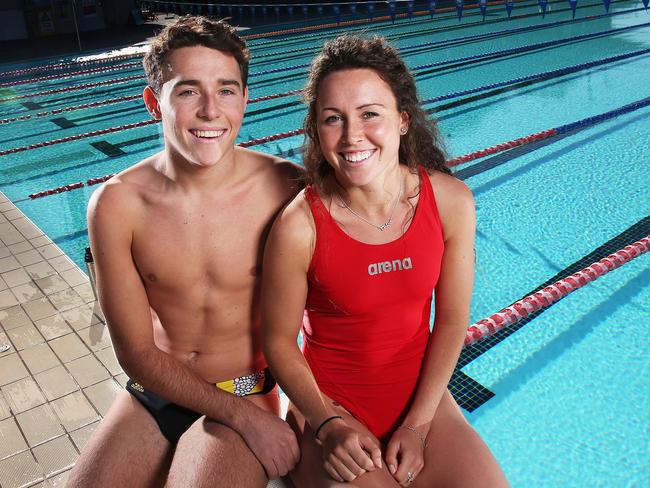
“Fencing is always seen as our weakest point, but Chloe was only two hits off a bronze medal in London,” Chiller says.
“Training against the best over there though, it’s not just physical training, it’s putting yourself in that mental space of “I can match it with you, just because I am from Australia doesn’t mean I can’t fence”. You really have to have that confidence and arrogance almost to go out there and attack everything.”
Fencing is the first event and if a good start keeps them close on handicap in combined run-shoot leg at the end, watch them fly.
“You can’t pace yourself, you have to give it everything you’ve got in the run,” Max says.
Chloe butts in: “Dad says: Okay, it’s kamikaze today. Just go hard from start to finish. Some pentathletes, they go hard but they save something for the last lap. We want to just give it everything you have got. If you are dead at the end, so be it.”
Max again: “Dad says “you are not going to die from pushing yourself. Just give it everything”. That’s what we do. That’s who we are.”
Originally published as Rio Olympics 2016: pain is gain for Aussie pentathletes Chloe and Max Espositos

